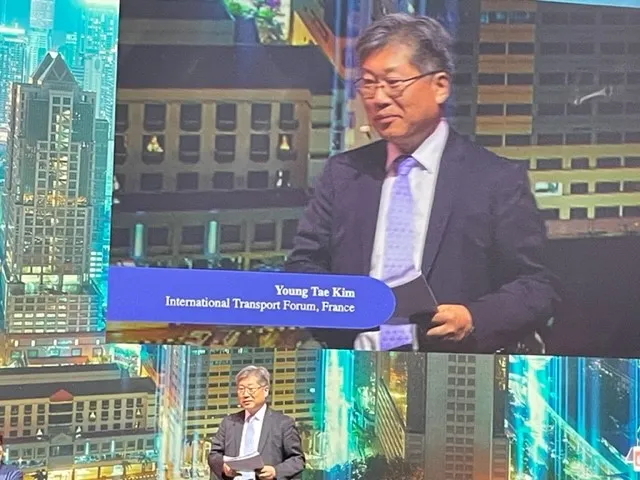Kim is the first non-European to lead the world’s only all-modes transport organisation.
The ITF acts as a policy think tank for its 59 member countries and organises the annual summit of transport ministers. Created as global intergovernmental transport organisation in 2006, the ITF evolved out of the European Conference of Ministers of Transport founded in 1953.
“It is a privilege to lead an organisation that drives global dialogue for better transport”, Kim said upon taking office. “I thank the ministers of transport of ITF member countries for entrusting me with the leadership of ITF. I will work with all of them to consolidate what has been achieved, to make our work even more relevant for them, and to further strengthen the ITF’s global impact.”
“Transport technology and services are changing in dramatic ways that require new policy responses. I want ITF to be a global pioneer of advanced transport policies for the 21st century”, Kim added.
Kim paid tribute to his predecessor, José Viegas, saying his achievements over the past five years provide a strong foundation to build on.
Prior to becoming ITF Secretary-General, Kim served as a Director-General in Korea’s Ministry of Land, Infrastructure and Transport. His career also included roles working for the President and the Prime Minister of Korea as well as three years at the Korean Embassy in Washington, DC. Kim holds a doctorate degree from the Institute d’Etudes Politiques (Science-Po) in Paris, France.
Young Tae Kim takes office as ITF Secretary-General
The International Transport Forum (ITF) at the OECD has a new Secretary-General. Dr Young Tae Kim, a Korean national, took up his position at the organisation’s Paris headquarters on 21 August.
Kim is the first non-European to lead the world’s only all-modes transport organisation.
The ITF acts as a policy think tank for its 59 member countries and organises the annual summit of transport ministers. Created as global intergovernmental transport organisation in 2006, the ITF evolved out of the European
August 22, 2017
Read time: 2 mins
The 998 International Transport Forum (ITF) at the 7353 OECD has a new Secretary-General. Dr Young Tae Kim, a Korean national, took up his position at the organisation’s Paris headquarters on 21 August.








